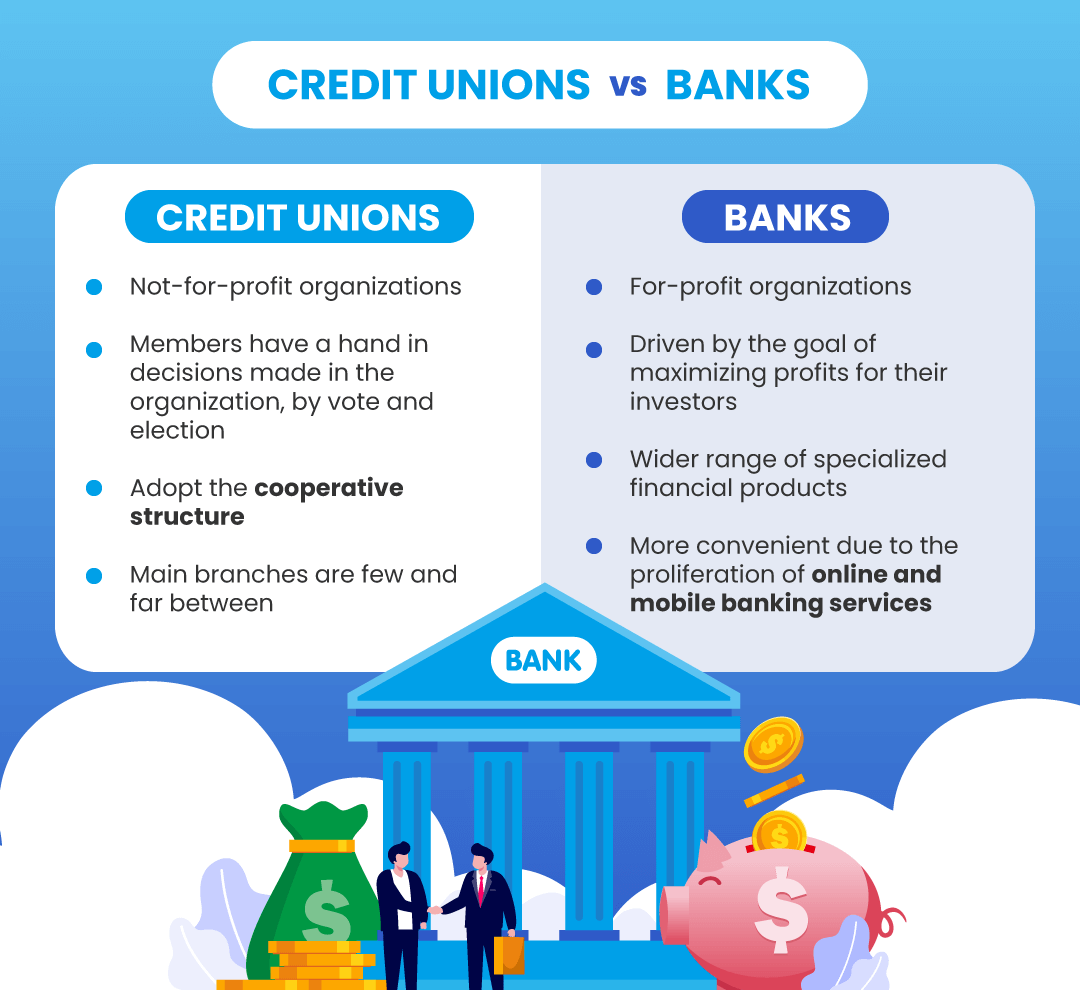Discover Top Credit Unions in Wyoming: Your Guide to Financial Services
The Ultimate Guide to Understanding Credit Rating Unions

Credit unions stand as distinct monetary entities, rooted in principles of common assistance and member-driven operations. As we browse through the intricacies of credit score unions, an informative journey waits for to drop light on these member-focused organizations and just how they vary from conventional financial institutions.
What Are Credit Report Unions?
Lending institution are member-owned banks that offer a variety of financial solutions to their members. Unlike conventional financial institutions, lending institution run as not-for-profit companies, suggesting their primary emphasis gets on offering their members instead of making best use of earnings. Participants of a lending institution generally share an usual bond, such as working for the same employer, coming from the very same area, or belonging to the same company.
Among the key benefits of credit unions is that they commonly offer greater rate of interest on savings accounts and lower rate of interest on financings compared to financial institutions. Federal Credit Union. This is due to the fact that credit rating unions are structured to profit their participants directly, enabling them to pass on their revenues in the form of better prices and fewer fees. Furthermore, cooperative credit union are known for their individualized client service, as they focus on constructing partnerships with their participants to recognize their unique financial demands and objectives
Background and Evolution of Credit Unions
The roots of member-owned economic cooperatives, recognized today as cooperative credit union, trace back to a time when communities sought choices to typical financial organizations. The concept of lending institution come from the 19th century in Europe, with Friedrich Wilhelm Raiffeisen commonly attributed as the pioneer of the cooperative financial motion. Raiffeisen founded the first identified credit rating union in Germany in the mid-1800s, emphasizing neighborhood assistance and self-help principles.
The evolution of cooperative credit union proceeded in North America, where Alphonse Desjardins established the first lending institution in Canada in 1900. Shortly after, in 1909, the initial U.S. lending institution was formed in New Hampshire by a group of Franco-American immigrants. These very early credit unions operated on the basic concepts of shared assistance, democratic control, and member possession.
In time, cooperative credit union have expanded in appeal worldwide as a result of their not-for-profit structure, emphasis on offering members, and using affordable monetary product or services. Today, lending institution play a crucial duty in the financial market, giving easily accessible and community-oriented banking choices for individuals and businesses alike.

Subscription and Qualification Criteria
Membership at a credit report union is generally restricted to individuals Federal Credit Union meeting particular eligibility requirements based on the establishment's starting concepts and governing demands. Some credit scores unions may just offer people who work or live in a particular location, while others might be tailored to employees of a certain business or members of a particular organization.
In addition, cooperative credit union are structured as not-for-profit companies, indicating that their main goal is to offer their members instead than produce profits for investors. This emphasis on member service often equates right into even more customized interest, reduced fees, and competitive rates of interest on cost savings and fundings accounts. By meeting the qualification standards and coming to be a member of a lending institution, people can access a variety of monetary items and solutions tailored to their certain demands.
Services and Products Supplied
One of the key aspects that establishes credit history unions apart is the varied array of financial services and items they offer to their members. Credit score unions typically provide traditional financial solutions such as cost savings and inspecting accounts, financings, and credit rating cards.
Furthermore, cooperative credit union commonly give practical online and mobile financial choices for members to easily handle their funds. They might use rewards such as common branching, enabling members to access their accounts at various other lending institution throughout the country. Some cooperative credit union also give insurance policy items like vehicle, life, and home insurance policy to aid members secure their assets and liked ones.

Advantages of Financial With Cooperative Credit Union
When thinking about financial establishments, checking out the advantages of financial with credit unions discloses special benefits for participants seeking personalized solution and affordable rates. Unlike huge banks, credit score unions are member-owned and focus on structure strong partnerships with their members. On the whole, banking with a credit history union can offer a much more personalized, cost-efficient, and member-centric monetary experience.
Verdict
In conclusion, credit scores unions stand out as member-owned monetary establishments that focus on offering their members over making best use of earnings. With beginnings dating back to 19th century Europe, pop over here credit report unions adhere to check this site out concepts of common aid and member ownership.
Credit unions are member-owned financial organizations that use a range of banking services to their members. The concept of credit report unions stem in the 19th century in Europe, with Friedrich Wilhelm Raiffeisen often credited as the pioneer of the cooperative banking activity.The advancement of debt unions proceeded in North America, where Alphonse Desjardins established the first credit scores union in Canada in 1900. Credit scores unions normally supply conventional banking solutions such as financial savings and inspecting accounts, finances, and credit rating cards.When taking into consideration monetary institutions, exploring the benefits of banking with debt unions exposes distinct advantages for members seeking tailored service and competitive rates.